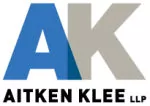- with readers working within the Banking & Credit industries
In Mostar Directional Technologies Inc. v. Drill-Tek Corporation and Drill-Tek MWD Services Ltd., Mostar claimed patent infringement and inducement. Mostar provides drilling services and solutions for drilling projects in the oil and gas industry, including equipment and services that can perform measurement while drilling ("MWD"). Mostar manufactures, offers for sale and rents an MWD tool that transmits sensor data acquired while drilling to a surface receiver using mud pulse telemetry and electromagnetic telemetry. The patents at issue related to a retrofitted MWD tool and a dual-telemetry MWD system.
In its Statement of Claim, Mostar sought a declaration that 146 claims from four different patents had been infringed directly by Drill-Tek, and indirectly by Drill-Tek through inducement and acting in concert with its customers. The initial Statement of Claim read:
20. At a date known to the Defendants but unknown to the Plaintiff, the Defendants began: (a) manufacturing, promoting and offering for sale and rental devices and systems; and (b) offering to perform methods and inducing others to perform methods, that infringe the Plaintiff's rights under each of the Mostar Patents. More particularly, the Defendants are offering for sale and rental systems that they call "Twin EM", "175c MWD", "EM add-on" or "Twin EM MWD System" and that either combine EM and MP telemetry or allow a customer to add an EM transmitter to its existing MP MWD tool string (collectively, the "Accused Devices/Methods").
After Drill-Tek received the Statement of Claim, they sought particulars as to how each of their devices, systems or activities infringed the asserted claims, including the parts or specific actions/capabilities of its systems that corresponded to the various claim elements. Mostar responded to the request for particulars and amended their Statement of Claim by adding 5 new claims. No additional material facts were pleaded in the statement of claim.
In her decision, Prothonotary Aylen, citing Dow Chemical Co. v. Kayson Plastics & Chemicals, (1966) 47 CPR 1, noted that the central issue was whether the Plaintiff had pleaded sufficient material facts. Mostar asserted that it had pleaded sufficient material facts by naming Drill-Tek's infringing devices and pleading the claim numbers comprising the asserted claims, and argued that nothing further was required of it at this stage. Mostar further asserted that Drill-Tek had an understanding of its own devices and methods, as detailed in the various public statements produced by Mostar in response to Drill-Tek's request for particulars – Mostar asserted that Drill-Tek was capable of understanding the asserted claims and the manner in which their devices and methods were alleged to be infringing. Finally. Mostar argued that it should be permitted to move forward to the discovery phase, after which it would further particularize "how" Drill-Tek's devices and methods infringed the asserted claims.
Prothonotary Aylen rejected the Plaintiffs' argument as failing to satisfy the requirement for properly pleading material facts:
[33] I reject the Plaintiff's assertion that the identification of the Defendants' model names and the enumeration of the claim numbers comprising the Asserted Claims are sufficient to enable the Defendants to know how they have allegedly infringed the Asserted Claims. In doing so, I note that the Plaintiff has failed to provide the Court with any case law that has recognized such a level of material facts as being sufficient to support a claim for patent infringement.
...
[35] I reject this assertion. It is not for the Defendant to undertake guesswork in order to respond to the Amended Statement of Claim. Specifically: (a) to guess as to how the Plaintiff is alleging that their activities correspond to the elements of the 151 Asserted Claims; (b) to guess as to how the Plaintiff is construing the scope of the 151 Asserted Claims; and (c) to guess the extent to which the Plaintiffs allege that the Defendants' activities infringe the 151 Asserted Claims.
[36] The Defendants are entitled to know the precise manner in which, according to the Plaintiff, the Defendants have infringed the 151 Asserted Claims. Without knowing the "how", the Defendants are unable to know the case they need to meet and are prevented from pleading intelligently in response...
Prothonotary Aylen also struck the claim as being an abuse of process under Rule 221(1)(f), as she found it to be an allegation of infringement made without any evidentiary foundation. While the Defendant admitted that it could plead over with a bare-bones Statement of Defence, Prothonotary Aylen held that such a pleading is insufficient as it does little, if anything, to frame the issued for discovery which defeats the very purpose of pleadings. Prothonotary Aylen further held that the Court cannot permit the Plaintiff to use discovery to explore potential grounds of infringement.
Prothonotary Aylen was also satisfied that there was no reason to grant the Plaintiff leave to further amend the Amended Statement of Claim, given the Plaintiff's admission that it was unable to provide any further material facts supporting its claim of infringement. Prothonotary Aylen therefore struck out the amended statement of claim and dismissed the action, without prejudice to the right of the Plaintiff to file a new action if new, non-speculative circumstances arose.
A copy of Prothonotary Aylen's decision is available here.
The content of this article is intended to provide a general guide to the subject matter. Specialist advice should be sought about your specific circumstances.
[View Source]

